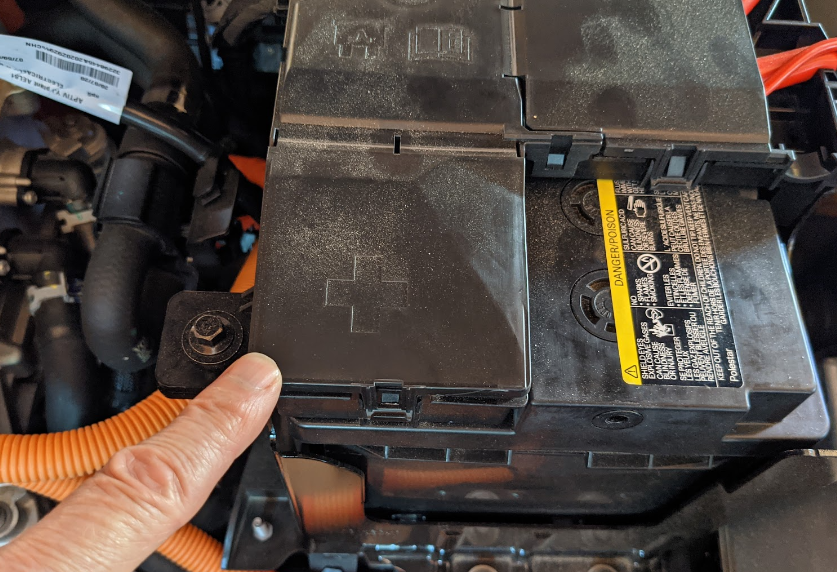Revolutionizing the Energy Industry: The Impact of Smart Grids and Lithium Batteries
In recent years, there has been a growing concern about the need to transition towards cleaner and more sustainable sources of energy. With the increasing demand for electricity and the urgency to reduce greenhouse gas emissions, the energy industry has been forced to explore new technologies and innovations. Two of the most promising advancements that are revolutionizing the energy industry are smart grids and lithium batteries.
Smart grids are a modernized version of the traditional electrical grid system. They incorporate advanced communication and automation technologies to optimize the generation, distribution, and consumption of electricity. By utilizing a network of sensors, meters, and control devices, smart grids enable real-time monitoring and management of energy flow. This allows for better coordination between power plants, renewable energy sources, and consumers, resulting in improved efficiency and reliability.
One of the key benefits of smart grids is their ability to integrate renewable energy sources into the grid. Traditional grids were designed to accommodate centralized power plants that rely on fossil fuels. However, with the increasing adoption of solar and wind energy, the generation of electricity is becoming more decentralized. Smart grids are capable of handling the variability and intermittency of renewable energy sources by dynamically adjusting the distribution and consumption of electricity. This not only reduces reliance on fossil fuels but also promotes the use of clean energy.
Lithium batteries, on the other hand, have emerged as a game-changer in the energy storage sector. Lithium-ion batteries, in particular, have gained popularity due to their high energy density, long cycle life, and fast charging capabilities. These batteries are widely used in portable electronic devices, electric vehicles, and now, in grid-scale energy storage systems.
The integration of lithium batteries into the energy industry has several advantages. Firstly, it enables better utilization of renewable energy. Energy generated from solar panels or wind turbines can be stored in lithium batteries during periods of low demand and released during peak hours. This reduces the need for backup power plants fueled by fossil fuels and allows for a more efficient use of clean energy.
Secondly, lithium batteries enhance grid stability and reliability. They provide a reliable source of power during blackouts or grid failures, ensuring uninterrupted electricity supply to critical infrastructure and residential areas. Additionally, they help balance the supply and demand of electricity, reducing the risk of power outages and grid instability.
Furthermore, lithium batteries facilitate the electrification of transportation. As the world moves towards a greener future, the demand for electric vehicles is increasing rapidly. Lithium batteries enable long-range driving, fast charging, and improved performance of electric vehicles, making them a viable alternative to traditional internal combustion engine vehicles. This not only reduces greenhouse gas emissions but also decreases our dependence on fossil fuels.
Despite these numerous benefits, there are still challenges that need to be addressed for the widespread adoption of smart grids and lithium batteries. One major hurdle is the cost. While the prices of lithium batteries have been decreasing steadily, they still remain relatively expensive compared to traditional energy storage options. Additionally, the installation and infrastructure costs associated with smart grids can be significant.

Another challenge is the need for regulations and policies that support the integration of these technologies. Governments and regulatory bodies need to incentivize the deployment of smart grids and lithium batteries through financial incentives and favorable policies. This will encourage investment in research and development, promote innovation, and accelerate the transition towards a cleaner and more sustainable energy future.
In conclusion, smart grids and lithium batteries are revolutionizing the energy industry by enabling the integration of renewable energy sources, enhancing grid stability, and promoting the electrification of transportation. While there are challenges to overcome, the potential benefits are significant. With continued advancements in technology, increased investment, and supportive policies, smart grids and lithium batteries have the power to reshape the energy landscape and pave the way towards a more sustainable future.
-
 Efterhånden som verden bliver mere afhængig af teknologi, fortsætter behovet for pålidelige strømkilder med at vokse. For dem, der har brug for langsigtede strømløsninger, er højkapacitets 12V LiFePO4-batteriet en fremragende mulighed. Med en kapacitet på 100Ah giver dette batteri rigelig energi til at drive en række forskellige enheder og applikationer. LiFePO4-batterier er en type lithium-ion-batteri...Læs mere
Efterhånden som verden bliver mere afhængig af teknologi, fortsætter behovet for pålidelige strømkilder med at vokse. For dem, der har brug for langsigtede strømløsninger, er højkapacitets 12V LiFePO4-batteriet en fremragende mulighed. Med en kapacitet på 100Ah giver dette batteri rigelig energi til at drive en række forskellige enheder og applikationer. LiFePO4-batterier er en type lithium-ion-batteri...Læs mere -
 A Lifepo4 battery pack is a type of rechargeable battery that is designed to provide long-lasting power for a variety of applications. These batteries are known for their high energy density, low self-discharge rate, and long cycle life, making them an ideal choice for use in electric vehicles, home energy storage systems, and other industrial applications. One of the...Læs mere
A Lifepo4 battery pack is a type of rechargeable battery that is designed to provide long-lasting power for a variety of applications. These batteries are known for their high energy density, low self-discharge rate, and long cycle life, making them an ideal choice for use in electric vehicles, home energy storage systems, and other industrial applications. One of the...Læs mere -
 Off-roading has always been a thrilling and adventurous activity for enthusiasts who crave the excitement of conquering rugged terrains. In recent years, there has been a significant shift towards embracing greener alternatives in various industries, and off-roading is no exception. The emergence of electric dirt bikes powered by lithium batteries has revolutionized the off-roading scene, offering an eco-friendly and high-performance...Læs mere
Off-roading has always been a thrilling and adventurous activity for enthusiasts who crave the excitement of conquering rugged terrains. In recent years, there has been a significant shift towards embracing greener alternatives in various industries, and off-roading is no exception. The emergence of electric dirt bikes powered by lithium batteries has revolutionized the off-roading scene, offering an eco-friendly and high-performance...Læs mere -
 As the world moves towards green and sustainable solutions, the motorcycle industry too is on the brink of a revolution. One of the mainstream dynamics it is altering pertains to two-wheel vehicle batteries. Increasingly, electric bike operations have been prioritized based on sustainability and reducing emissions-posing quite a challenge to bicycle manufacturers standing up with cutting-edge efficient solutions, and yet...Læs mere
As the world moves towards green and sustainable solutions, the motorcycle industry too is on the brink of a revolution. One of the mainstream dynamics it is altering pertains to two-wheel vehicle batteries. Increasingly, electric bike operations have been prioritized based on sustainability and reducing emissions-posing quite a challenge to bicycle manufacturers standing up with cutting-edge efficient solutions, and yet...Læs mere -
 In today's world, energy storage is becoming more and more important. We need to be able to store energy reliably and efficiently, so that we can use it when we need it most. This is where the 100Ah Lithium Lifepo4 battery comes in. This battery is designed to provide long-lasting power that you can rely on. One of the...Læs mere
In today's world, energy storage is becoming more and more important. We need to be able to store energy reliably and efficiently, so that we can use it when we need it most. This is where the 100Ah Lithium Lifepo4 battery comes in. This battery is designed to provide long-lasting power that you can rely on. One of the...Læs mere -
 In today's world, uninterrupted power supply is of utmost importance for both domestic and industrial usage. A power outage can cause major disruptions in daily life or even lead to significant financial loss in industries. Hence, the need for a reliable and efficient on-board battery charger that can provide uninterrupted power supply is paramount. One such device that is...Læs mere
In today's world, uninterrupted power supply is of utmost importance for both domestic and industrial usage. A power outage can cause major disruptions in daily life or even lead to significant financial loss in industries. Hence, the need for a reliable and efficient on-board battery charger that can provide uninterrupted power supply is paramount. One such device that is...Læs mere -
 Lithium ion batteries have revolutionized the way we power our everyday devices, from smartphones to electric cars. The most common type of lithium ion battery is the lithium cobalt oxide battery, but there are several other types, each with its own unique advantages and disadvantages. One such type is the lithium iron phosphate (LiFePO4) battery. In this article, we will...Læs mere
Lithium ion batteries have revolutionized the way we power our everyday devices, from smartphones to electric cars. The most common type of lithium ion battery is the lithium cobalt oxide battery, but there are several other types, each with its own unique advantages and disadvantages. One such type is the lithium iron phosphate (LiFePO4) battery. In this article, we will...Læs mere

